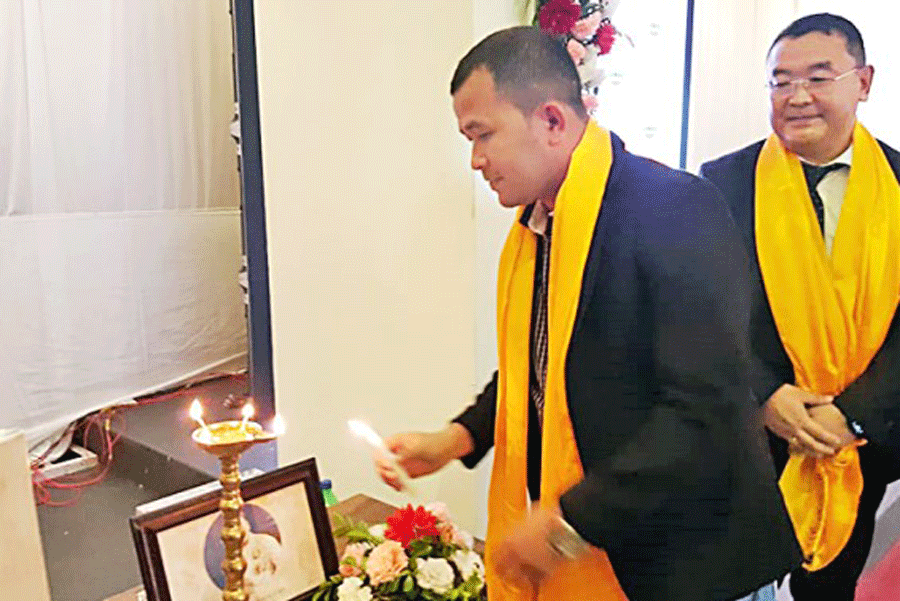Faatsung, meaning “Song of the Soil” in Lepcha language, a Nepali novel based on the Gorkhaland agitation, is singing its way to glory.
The 2019 novel written by Chuden Kabimo, 33, has been translated into English, Bengali and Hindi so far.
While the original Nepali novel was shortlisted for the prestigious Madan Puraskar (2019) in Nepal, the English translation was shortlisted for the JCB Prize for Literature (2021), considered a prominent literary award in the country.
The Hindi translation which was completed by Namrata Chaturvedi, a professor at Delhi University, has now been nominated for the “Bank of Baroda Rashtrabhasha Samman”, which carries a total prize sum of Rs 61 lakh.
The Hindi translation of Faatsung is among 12 longlisted books.
The five-member jury is chaired by Booker Prize winner Geetanjali Shree.
“I had never imagined that my work would go this far,” said Kabimo.
The award instituted by the bank from this year is unique in the sense that it recognises works translated in Hindi from 22 regional languages included in the Eighth Schedule of the Constitution.
“The author of the original work and the respective Hindi translator of the award-winning book will receive Rs 21 lakh and Rs 15 lakh, respectively. Moreover, the authors and the Hindi translators of the next five shortlisted books will receive Rs 3 lakh and Rs 2 lakh, respectively,” said Sonam Tshering Bhutia, zonal head, Bank of Baroda.
Chuden’s novel starts from the stories he listened to growing up in his village in Kalimpong. The story is based on the violent Gorkhaland agitation of 1986.
“During my travels, I used to hear stories of how people were killed and their bodies were thrown in a particular place. I was born after the agitation and the stories sounded like myths,” said Chuden.
On Tuesday, the bank organised an interactive session in Darjeeling where Chuden and Namrata talked about their experiences. Similar events are being organised in Delhi, Bhubaneshwar, Chandigarh, Calcutta, Chennai and Mumbai also before the award is announced on June 10.
Translator Namrata said one of the major challenges she faced was in tackling the “geographical metaphor”. She said she was not looking for a book to translate. “However, when I read the book I felt I had to translate,” said Namrata, who took a little over two years to complete her work. Namrata has in the past translated poems and other works but this is her first full-length book translation.
Faatsung, Chuden’s debut novel, is also being taught in various educational institutions.
Chuden said he has already started work on his next book. “My upcoming book is about the tea garden workers in the Dooars and the Terai. I usually like to write about themes that revolve around real incidents,” said Chuden.
In fact, his collection of short stories, titled 1986, which came before Faatsung, was also based on the Gorkhaland agitation of 1986. The book earned the young writer the Sahitya Akademi Yuva Puraskar in 2018.











